The average cost of a UK household’s annual energy bill is over £3100 and is due to rise further, according to Ofgem, the energy regulator. Millions of people, who were already struggling up to now with high bills, face even more severe energy price rises.
As the weather gets colder, our heating bills go up. But there are ways to keep our homes warm without breaking the bank. Here are 11 simple tricks to lower your electricity bill at home:
How to lower your energy and heating costs in winter
The main ways to lower your energy and heating costs are:
- Draught-proof around your home
- Turn off standby appliances
- Swap to LED lightbulbs wherever you can
- Regularly clean filters in your appliances
- Install a smart thermostat
- Turn down your thermostat
- Use the power shower less
- Buy efficient appliances
- Run your washing machine at low temperatures
- Put the dishwasher on eco mode for the dishes
- Install a new energy efficient boiler

The average household now has over a dozen electronic appliances including TVs and laptops. This is a huge increase from just a couple of decades ago.
Even though most of these appliances are more energy efficient, there is much you can do to reduce your energy consumption and save money with almost every appliance.
Cost-effective ways to save energy
Draught-proof around your home
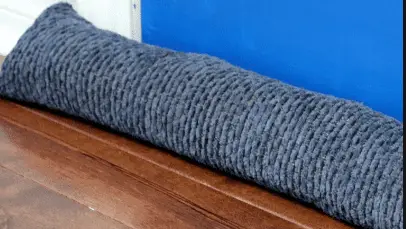
Outside draughts can enter your home through gaps under your doors, fireplaces, and even letterboxes. Look for uncovered gaps and openings to the outside of your home to prevent warm air from escaping.
The most common places in your home windows where you’ll find draughts are floorboards, doors and windows.
Turn off standby appliances
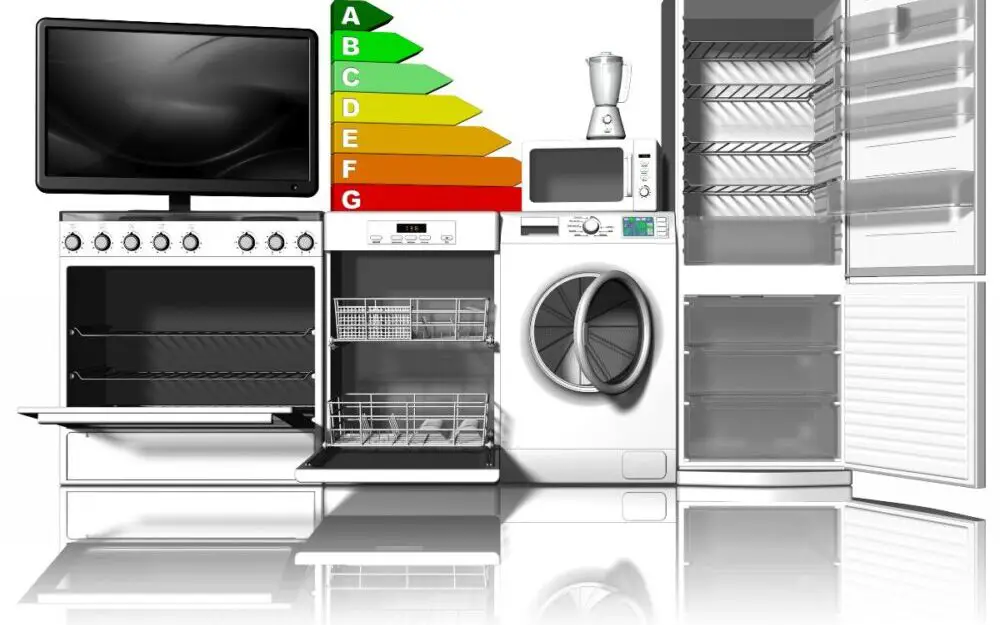
Many of us are guilty of leaving chargers and appliances plugged in when not in use. Even if the device is not turned on.
Even if it is already marketed as energy efficient, it still draws power from the socket. That’s power being squandered – and you’re paying for it! So turn off at the switch when not using them.
Swap to LED lightbulbs wherever you can
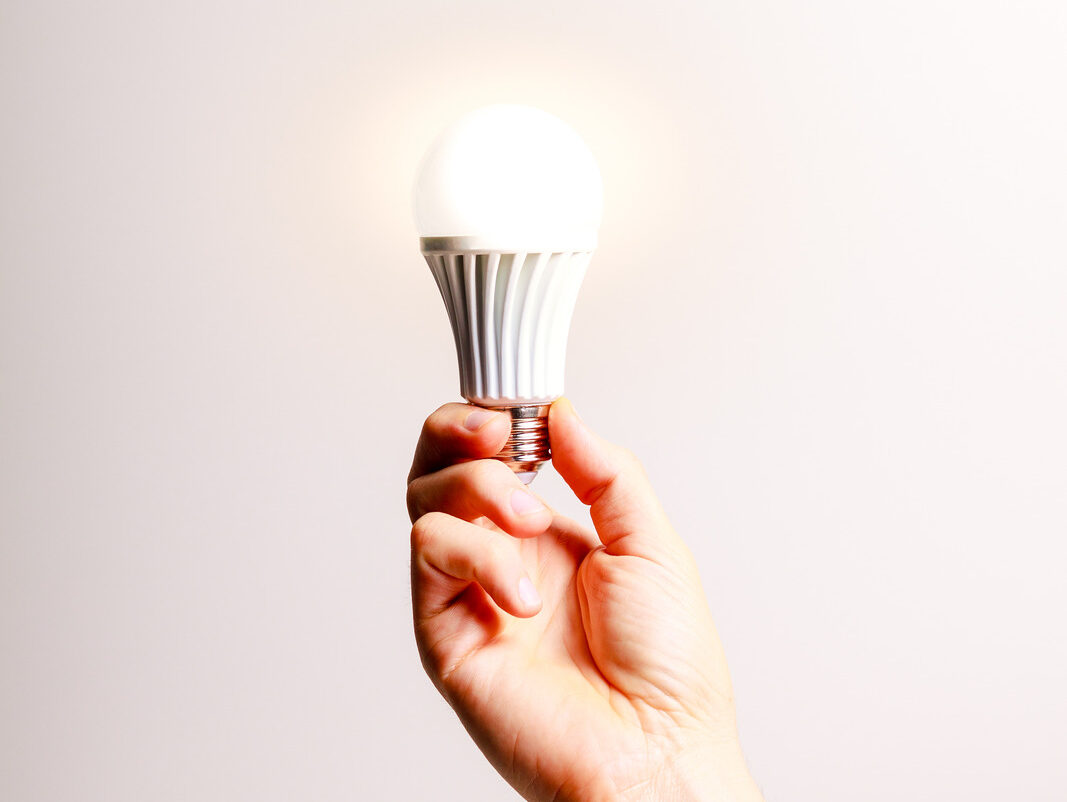
These new environmentally friendly light bulbs save money as well as energy. A typical bulb lasts approximately 50,000 hours of continuous operation!
They can also cut your lighting bill by up to 90%, saving you up to £300 per year based on the average three-bedroom semi-detached home.
Regularly clean filters in your appliances
If you fail to clean the filters in your appliances, they will require more energy to function. This means more energy and more costs! Make sure to regularly check, clean, or replace your filters in order to keep your appliances running smoothly and your household bills low.
Install a smart programmable thermostat
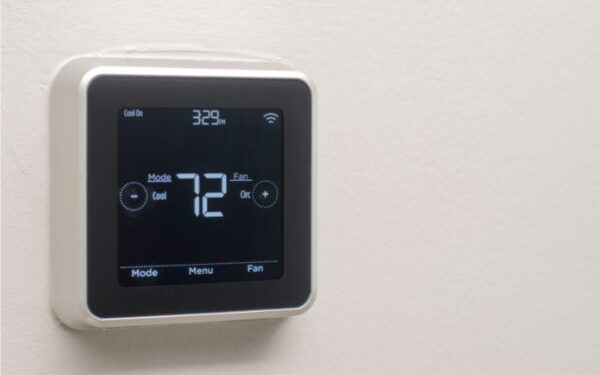
A smart thermostat’s advantage is its ability to learn a household’s patterns and adjust heating and cooling based on when a home is occupied or about to be occupied.
When no one is at home for extended periods of time, this reduces the use of heating and cooling systems.
Turn down your thermostat

You can save about 1% on your heating bill for every degree your thermostat is turned down during cold weather if the temperature is changed for at least 8 hours.
When the temperature is lower, your house loses heat more slowly.
Use the power shower less
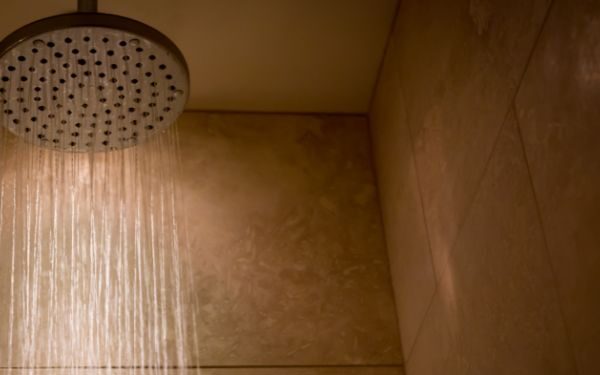
Overall, an electric shower is less expensive than a power shower because it uses less energy and water and heats up faster.
If you go for an electric shower, you can have more showers for less money.
Buy energy efficient appliances
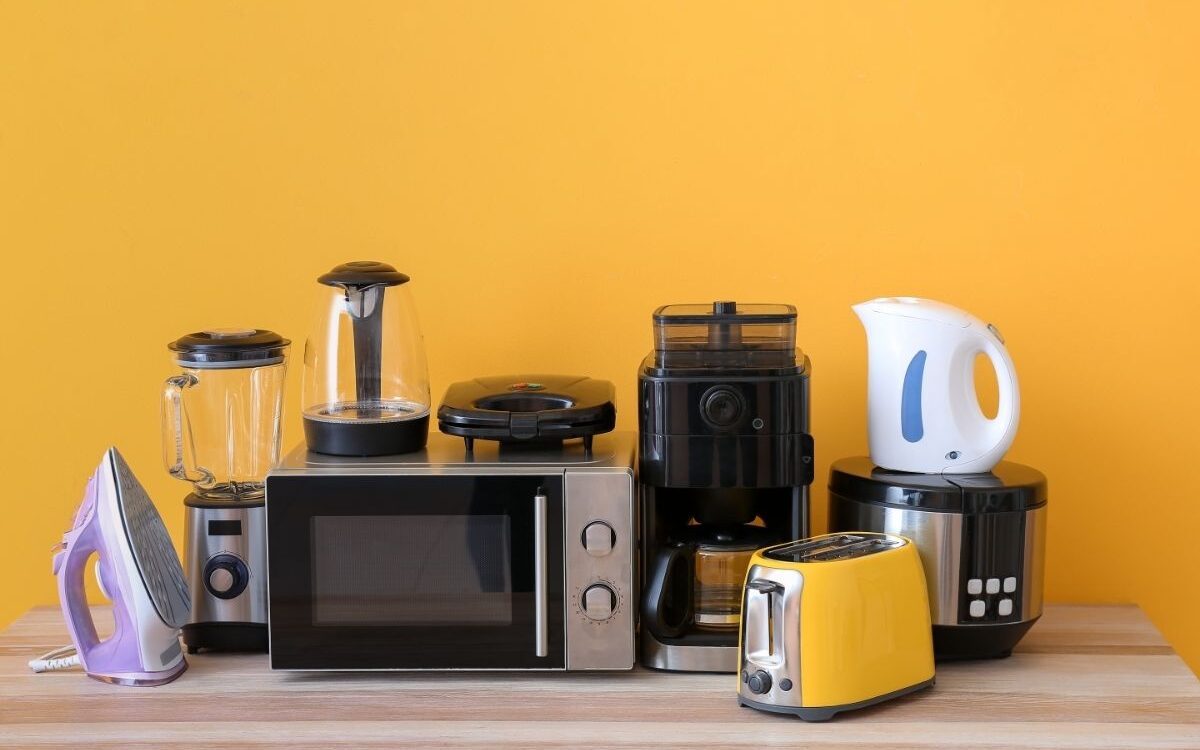
Energy-efficient appliances can convert small amounts of energy into the amount of energy required to complete a task.
Many of these appliances can operate at lower temperatures and energy levels, allowing them to function until the task is completed.
They save energy, money and are environmentally friendly.
Use this energy cost calculator provided by GoCompare to find out how much it costs to run common household appliances and compare them to each other.
Run your washing machine at low temperatures
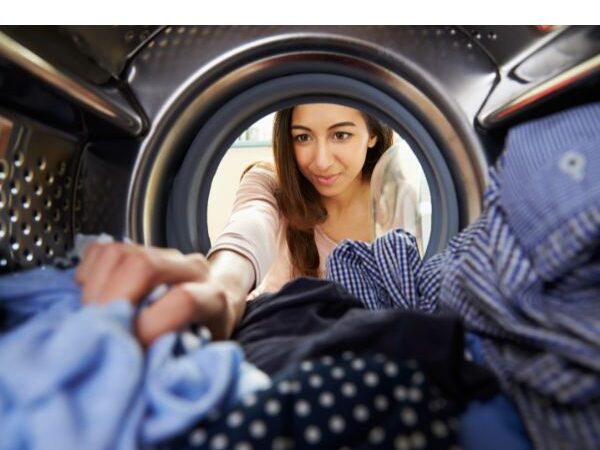
Washing your clothes at lower temperatures and for shorter periods of time can significantly increase your machine’s energy efficiency – a 30 degree cycle can cut your washing machine’s energy use in half when compared to a 40-60 degree cycle.
It’s more cost-effective to save your hot washes for bedding, towels, and sportswear, which are more likely to harbour a variety of bacteria. If your washing machine has an eco setting, use it to save even more money.
Put the dishwasher on eco mode for the dishes
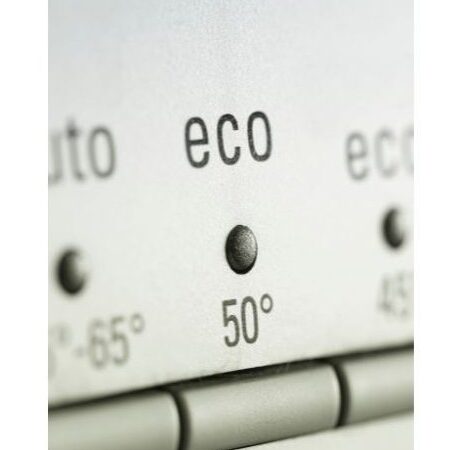
Eco mode is a programme mde that uses lower wash and rinse temperatures, requiring less energy for heating and requiring less water while still achieving a satisfactory level of dirt removal.
Across brands and models, eco mode consumes the least amount of energy. The default and quick washing programmes use 20-30% more energy than eco modes.
Install a new energy efficient boiler
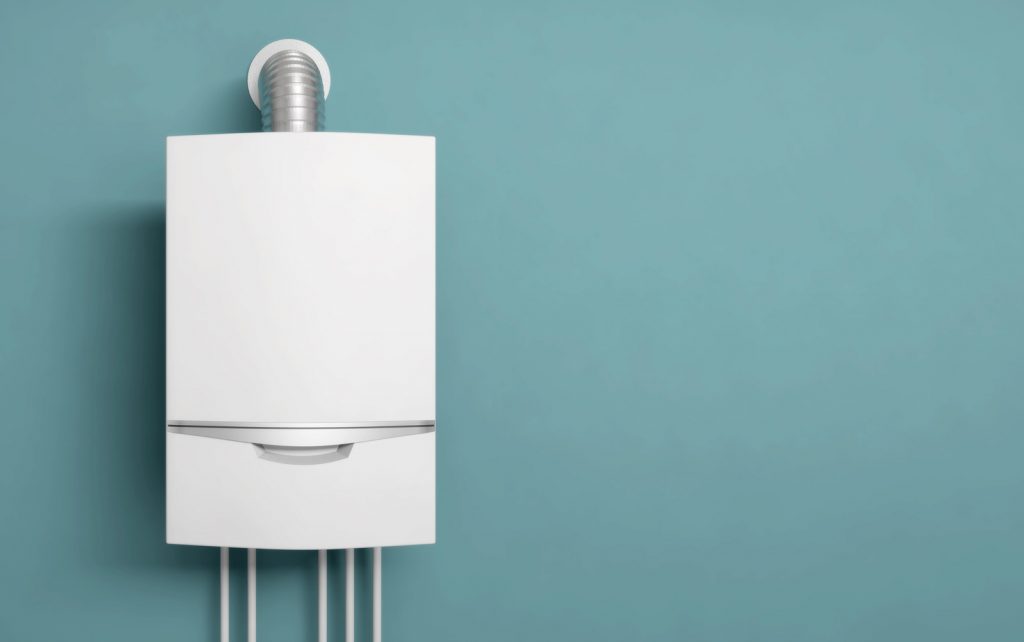
A new boiler will reduce your energy costs year on year by saving energy. It has better temperature control than an older boiler and has long warranties for peace of mind.
New boilers also don’t take up as much space as older boilers and they are quieter.
Be smarter about using water
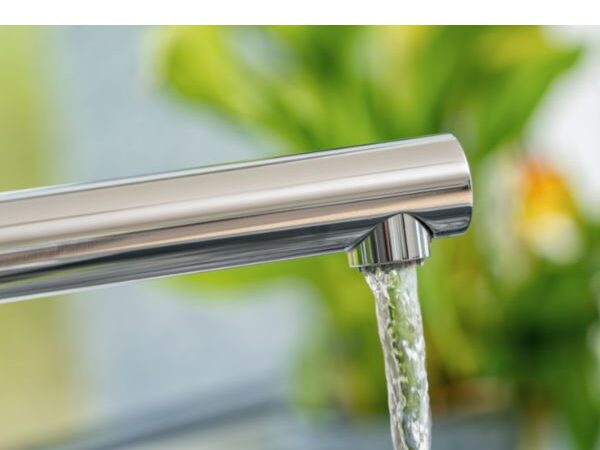
Some good ways of being efficient with water in the home are: Less water should be flushed down the toilet by using a water displacement device; use showers instead of full baths.
Use dishwashers and washing machines on eco modes; repair dripping faucets and leaks quickly and turn off the water when not being used.
You can find more info about the cost of water leaks on Ofwat’s website here.
Invest in double glazing windows and doors

Double glazing windows are able to use the air cushion to keep the heat inside. This means that your home stays warmer for longer and will cost much less to heat in the first place.
Not only will this significantly reduce your monthly energy bill, but it will also reduce your home’s environmental impact.
Get benefits and grants to help pay your bills
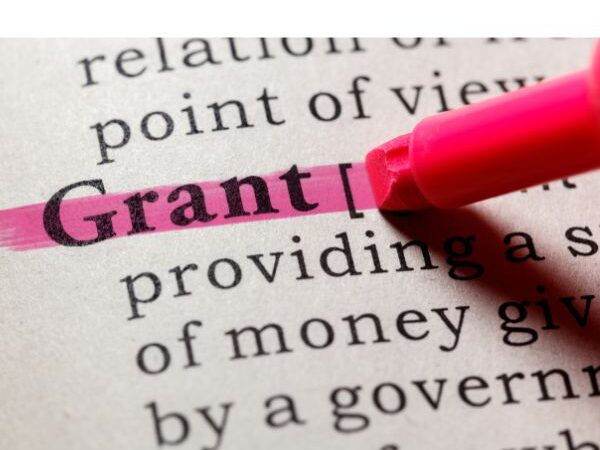
Many government programmes offer free or subsidised energy-saving measures. These are intended to assist vulnerable people while also encouraging energy efficiency in our homes. Some schemes are available directly from your supplier.
You can apply for the Warm Home Discount, Winter Fuel Payment or the Boiler Upgrade Scheme among others. More information is available from Ofgem here.
Install loft insulation
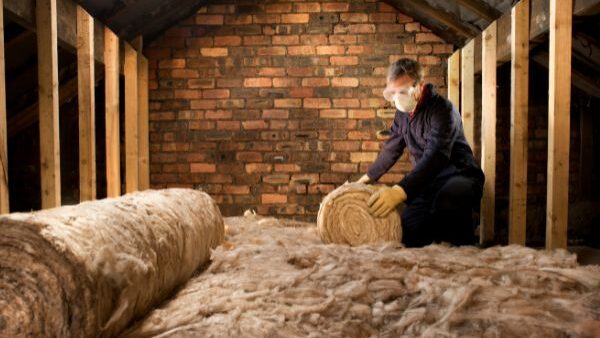
Installing loft insulation has several key advantages, including increased energy efficiency by avoiding heat loss –this helps to lower heating bills; noise reduction and better environmental impact, as well as the potential to increase the value of the home.
These advantages, combined with its low cost and ease of installation, make it an excellent choice for increased comfort.
Check your gas and electricity meters are set up correctly
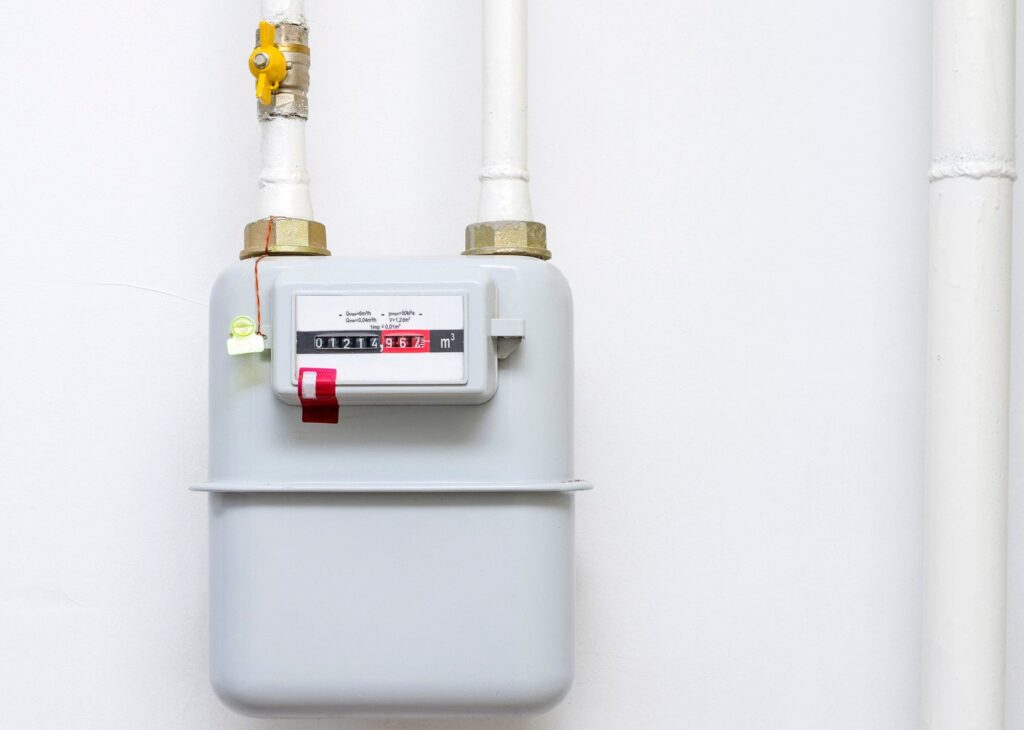
Meter readings inform energy suppliers about how much gas and electricity you use. If you do not double check your meters are set up correctly on the bill or provide meter readings to your supplier, they will have to guess your usage.
When this happens, you usually end up paying too much or too little. This means you could be building credit or falling into debt as a result.
If you think believe your meter is different to the meter number printed on the bill, contact the supplier and they will check details with you. For more information, visit this page on Citizen’ Advice website.
Defrost your freezer regularly
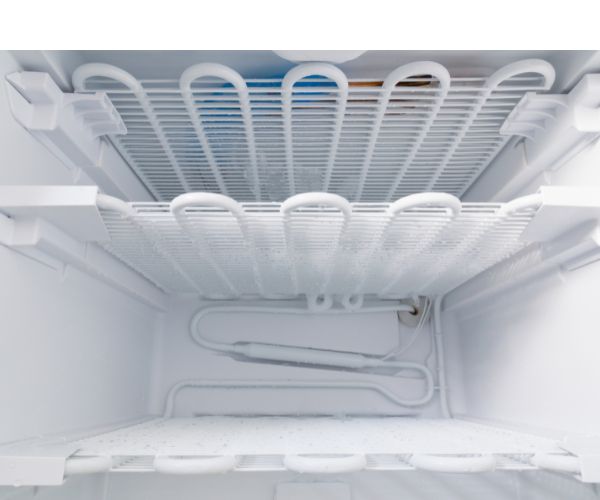
Even freezers with auto-defrost functions will accumulate ice over time.
This will make it more difficult for the freezer to maintain the proper temperature, potentially reducing the amount of time you can store individual items.
Compare energy prices

You only need to provide a few details, such as your postcode, current supplier, and payment and contact information.
You can compare estimated yearly and monthly costs, as well as annual savings and whether there is a fee for leaving early. All of this makes it simple to find the best deal for you.
You’ll be given the option of selecting a well-known supplier or choosing from the full list of big and small energy suppliers.
You can choose whether your payments will be fixed or variable. A fixed rate means your payments will remain constant throughout, whereas a variable rate means they will change depending on the market.
If you are still struggling to pay your energy bills, learn more about the help you can get from the citizens advice website.
Summary
Some effective ways to save money are to swap to LED lightbulbs in your house, draught-proof doors, run your washing machine at low (30⁰C) temperatures, apply for grants and benefits to help pay bills, and turn your thermostat down by one degree at a time.
Read related articles:
- Keep Warm With A Heating Allowance
- Electric Heaters That Are Cheapest to Run
- These Appliances Use The Most Electricity In Your Home
*The information in this article should be used for general guidance only and not as financial or health advice. Full details are on the link in the footer to our disclaimer page. Always discuss your requirements with a competent and suitably qualified professional before undertaking any work.
